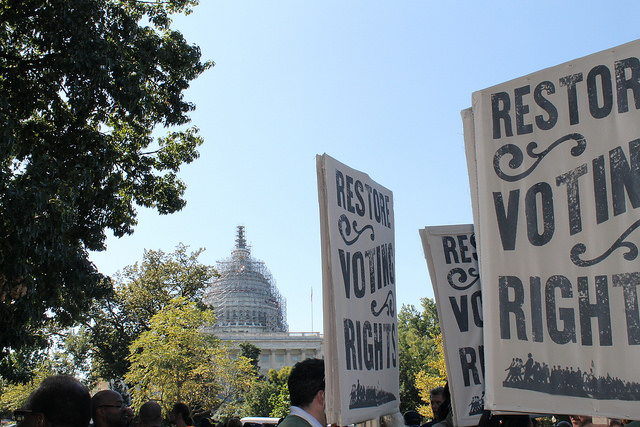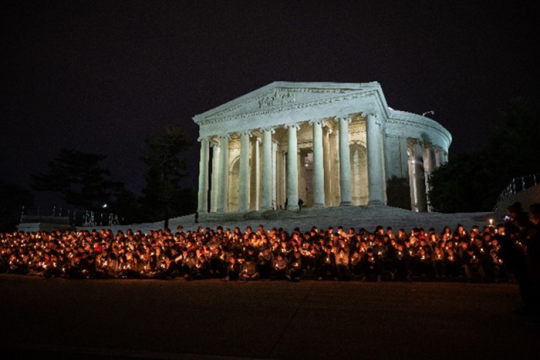
Across the country, it is difficult not to notice that we are swiftly approaching another general election. Political ads are appearing more frequently on our televisions and news feeds, the presidential debates are over and Election Day is just around the corner.
The importance of electing our leaders was stated clearly and simply over 2000 years ago by Rabbi Yitzhak. who taught that “A ruler is not to be appointed unless the community is first consulted” (Babylonian Talmud Berachot 55a). As we approach this election, we wonder: Who is included in the “community” that is the American electorate?
Much of this question will be answered by assessing the impact the Supreme Court’s 2013 decision in Shelby County v. Holder will have on this election. That decision struck down a formula in the 1965 Voting Rights Act that had determined which states and counties would have to seek federal approval for changes to election law under a requirement known as preclearance. Without preclearance, over a dozen states have rushed to change voting laws in ways that have a disproportionate effect on people of color, poor people and others.
Across the country, advocates have brought legal challenges to these new changes, with some notable successes. As I’ve written before, a three-judge panel of the Fourth Circuit Court of Appeals struck down North Carolina’s new voting law in late July after determining that it was created with discriminatory intent. On August 1, a federal judge overturned a North Dakota law that had further restricted the state’s voter ID requirement after finding that it unfairly burdened Native Americans. Most recently, on September 9, a federal appeals court placed a temporary hold on a requirement in Georgia, Kansas and Alabama that voters would have to send proof of citizenship along with their voter registration form (other restrictions remain on the books in Kansas and Alabama).
Despite these victories, there are still 14 states that are set to have new voting restrictions on the books this November. Moreover, the Shelby ruling has left the Department of Justice without the mandate to send poll monitors to many areas. In years past, they had been able to send observers to areas under the preclearance requirement, but without the formula they can only do so when ordered to do so by a court.
Both the appearance of new laws that limit the right to vote for minorities and the sharp decrease we will see in federal election observers prompt us to stand up for voting rights this fall. On Election Day, Reform Jews will participating in Nitzavim: Standing up for Voter Participation and Protection by volunteering to do non-partisan election protection work in Macon, Georgia, Cincinnati, Ohio and around the country. Join us on a post-election call on Thursday, November 10 from 2:30 to 3:30 PM to learn about how changes in voting laws impacted the 2016 election and what election results mean for our continued pursuit of racial justice.
Related Posts

Teens from North Carolina Speak About Environmental Justice

Why is this Right Different?: City of Grants Pass, Oregon v. Johnson and the Passover Call to Action


